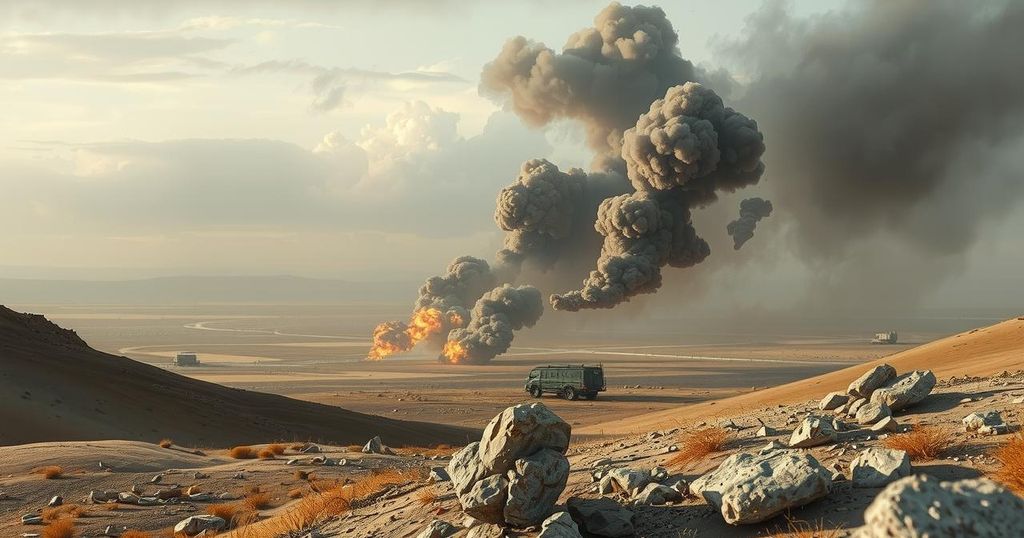A recent South Sudan airstrike killed 19 individuals near the Ethiopian border, escalating tensions after the withdrawal of government forces from conflict with the White Army. The clashes may reignite the civil war, with accusations of political collaboration between rival factions. Meanwhile, Uganda has sent troops to support the South Sudanese government, which denies their presence.
The air force of South Sudan conducted a significant airstrike in the eastern region, resulting in the deaths of approximately 19 individuals, as reported by local sources. This tragic event occurred shortly after government forces withdrew from the area amid intense conflict with the White Army, a group primarily composed of armed Nuer youth, thus heightening regional tensions.
Clashes erupted in Nasir, near the Ethiopian border, between government forces and the White Army. This fighting poses a risk of reigniting the civil war that occurred from 2013 to 2018, which resulted in the loss of hundreds of thousands of lives. The government has accused the party led by First Vice President Riek Machar of collaborating with the White Army, a group that previously allied with Machar against President Salva Kiir’s Dinka forces. Machar’s party has refuted these allegations.
Notably, a South Sudanese general was among the 27 soldiers who died on March 7 during an attack on a U.N. helicopter dispatched to evacuate them from Nasir. Following this, Information Minister Michael Makuei confirmed the recent airstrike in Nasir. Reports indicate that the bombing occurred late Sunday night, leading to immediate casualties among the victims, with additional deaths reported soon thereafter.
Local community leader Kang Wan reported that 15 individuals died instantly in the strike, while others succumbed to their injuries later. Some sources noted a total of 16 bodies had been observed at the scene, all severely burned. Following the incident, Doctors Without Borders treated several individuals injured during the strike, although two patients were pronounced dead upon arrival due to severe burns.
James Gatluak Lew, a county commissioner in support of Machar, implied that the airstrike could have been a retaliatory action following the earlier helicopter attack. Meanwhile, Uganda has announced the deployment of special forces in South Sudan’s capital, Juba, to bolster security. Contrarily, the South Sudanese government denied the presence of these Ugandan troops, yet Makuei acknowledged that some Ugandan army units were in the country to support the national army as needed.
This article illustrates the escalating violence in South Sudan, particularly near the Ethiopian border where a recent airstrike has led to multiple fatalities amidst ongoing ethnic tensions. The potential for rekindling the civil war remains a concern as accusations of collaboration between political factions and armed groups circulate. Furthermore, external military involvement from Uganda adds another layer of complexity to the situation, underscoring the precarious state of security in South Sudan.
Original Source: myind.net






